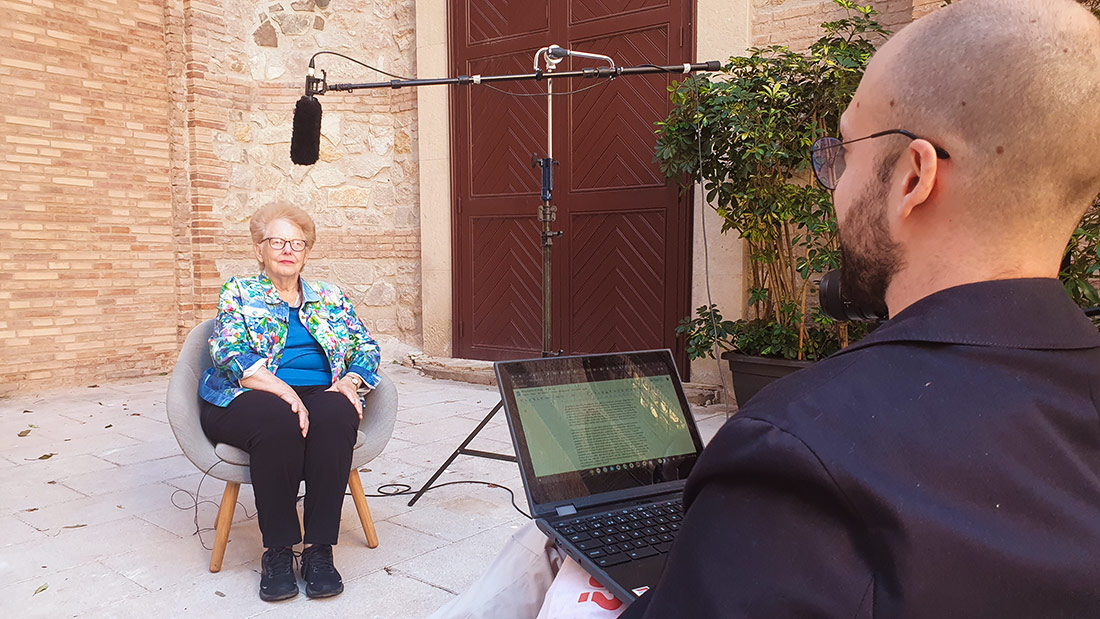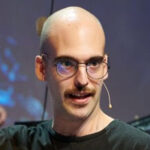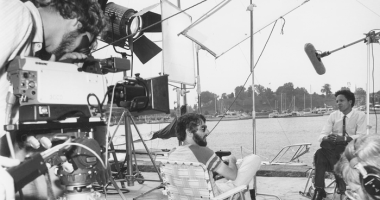Katherine Hayles is one of the most relevant authors in the field of posthumanism. Her work places the focus on materiality and cognition and criticises the understanding of humans as autonomous and independent subjects. In the age of AI, her ideas lead us to a new vision of human evolution.
The division between scientific and humanistic culture, as well as the increasing academic hyper-specialisation of these fields, have had dire consequences for knowledge. Techno-scientific mutations feed into philosophical reflection and literary creation, which in turn provide concepts and fictions with which to construct the paradigms or “epistemes” that make any discovery or invention possible (or even conceivable). Moreover, the challenges of our time (such as climate change) are complex and multi-causal, meaning they require an interdisciplinary approach that has yet to be endowed with material supports, institutional frameworks and methodological approaches. However, such a combination of heterogeneous knowledge can be found in the work of N. Katherine Hayles, whose scientific background provides a solid basis for analysing the social and cultural aspects of contemporary technoscience.
Hayles gave up her career as a chemist to pursue a doctorate in literary criticism and research the relationships between literature, science and technology. In her first book, The Cosmic Web (1984), she charts the evolution of the physical concept of “field” through to quantum mechanics and general relativity. This is a model that describes the universe as a dynamic web of patterns arising from the mutual interaction between their components; however, this harmonious whole is also incomprehensible, since any description made by an observer is part of that which is being described. Self-referentiality and indeterminacy go beyond Gödel’s theorem or Heisenberg’s principle – they are present in narrative strategies such as Nabokov’s time-space jumps and Borges’ infinite regress. Far from establishing a unidirectional relationship, Hayles claims that “literature is as much an influence on the scientific models as the models are on the literature.” [1] Chaos Bound (1990) explains the way this paradigm has shifted towards the science of chaos, which is no longer understood as a simple absence of order but as an expression of complexity. Once again, the scientific study of non-linear dynamics and emergent phenomena has run parallel to the development of new ways of conceiving textuality in critical and literary theory, especially in currents such as post-structuralism. She attributes these similarities to a “common cultural matrix” [2] which she situates in the postmodern defence of discontinuity and fragmentation, showing that science and literature are not outside its culture but embedded in it.

Another of the questions on which she focuses her attention is the impact of the digital (or “postprint”) era [3] on reading and writing, especially with regard to electronic literature or “technotexts.” In Writing Machines (2002) she proposes a specific analysis of the materiality of the medium, based on the conviction that “the physical form of the literary artefact always affects what the words and other semiotic components mean.” [4] This also implies attending to the relationships of machine code to other systems of signification (such as speech and writing) and of computation to other models of understanding reality (such as classical metaphysics). Code is seen as the universal language of nature within the “regime of computation” that she dissects in My Mother Was a Computer (2005): “a narrative that accounts for the evolution of the universe, life, mind, and mind reflecting on mind by connecting these emergences with computational processes that operate both in human-created simulations and in the universe understood as software running on the “Universal Computer” we call reality.” [5] This continuous interaction between language and code also implies a cognitive and morphological transformation of the human brain. Hence, in How We Think (2012), she calls “technogenesis” the “continuous reciprocal causality between human bodies and technics.” [6] The use of tools has played a central role in the evolution of our species, bringing about both cognitive changes (such as the development of language) and musculoskeletal changes (such as bipedalism). In the case of digital technologies, the acceleration and intensification of information flows affects faculties such as attention, even in their non-conscious processes, which are as important or more so than consciousness in the interaction with technological environments.
This interest in materiality and cognition has been at the heart of her posthumanist work since the publication of How We Became Posthuman (1999), which attacks the understanding of humans as information processing systems independent of their physical support (as is the view of first-order cybernetics) and as a unitary, autonomous and sovereign subjects (as per liberal humanism). In contrast, Hayles’ posthumanism aims to overcome the mind/body divide by advocating situated and contextual embodiments, and presents a new model of subjectivity based on “an amalgam, a collection of heterogeneous components, a material-informational entity whose boundaries undergo continuous construction and reconstruction.” [7] This definition is close to Haraway’s definition of the cyborg as a “hybrid of organism and machine,” “disassembled and reassembled.” [8] However, Hayles is more interested in cognitive hybridisation – a cognition that is distributed through “dynamic cognitive flows between human, animal and machine” [9] that constitute what she calls the “cognosphere” or, more recently, a “distributed cognitive assemblage.”
Unthought (2017) revisits non-conscious cognition and defends its importance with philosophical arguments (such as the enactive approaches laid out and embodied in philosophy of mind) and empirical evidence from cognitive biology and neuroscience. This has taken her to an expanded understanding of cognition (“a process of interpreting information in contexts that connect it with meaning”) that includes biological organisms and technical systems, undermining anthropocentrism without appealing to vague ideas about agency (as a reproach to the new materialisms). The distinction between “cognizant” and “non- cognizant” allows for an ethico-political framework broad enough to accommodate the full range of cognitive actors and to deploy their potential to address environmental challenges. This approach is particularly necessary in a world governed by algorithms, as it makes possible to assign differentiated responsibilities related to who (or what) has control over their design parameters, their socio-economic implementations and their possible consequences. It is thus an important contribution to the creation of “more open, just, and sustainable futures for humans, non-human life-forms, and technical cognizers.” [10] In other words, a planetary cognitive ecology.
[1] Hayles, N. Katherine (1984), The Cosmic Web: Scientific Field Models and Literary Strategies in the Twentieth Century. Londres: Cornell University Press.
[2] Hayles, N. Katherine (1990). Chaos Bound. Orderly Disorder in Contemporary Literature and Science. Londres: Cornell University Press.
[3] Hayles, N. Katherine (2021). Postprint: Books and Becoming Computational. Nueva York: Columbia University Press.
[4] Hayles, N. Katherine (2002). Writing Machines. Cambridge: The MIT Press.
[5] Hayles, N. Katherine (2005). My Mother Was a Computer: Digital Subjects and Literary Texts. Chicago: University of Chicago Press.
[6] Hayles, N. Katherine (2012). How We Think: Digital Media and Contemporary Technogenesis, Chicago: University of Chicago Press.
[7] Hayles, N. Katherine (1999). How We Became Posthuman: Virtual Bodies in Cybernetics, Literature, and Informatics. Chicago: University of Chicago Press
[8] Haraway, Donna (2023). «Manifiesto cíborg: ciencia, tecnología y feminismo socialista a finales del siglo XX» en Mujeres, simios y cíborgs: la reinvención de la naturaleza. Madrid: Alianza.
[9] Hayles, N. Katherine (2006). «Unfinished Work: From Cyborg to Cognisphere». Theory, Culture & Society 23(7-8): 159-166.
[10] Hayles, N. Katherine (2017). Unthought: The Power of the Cognitive Nonconsciouss. Chicago: University of Chicago Press.




Leave a comment